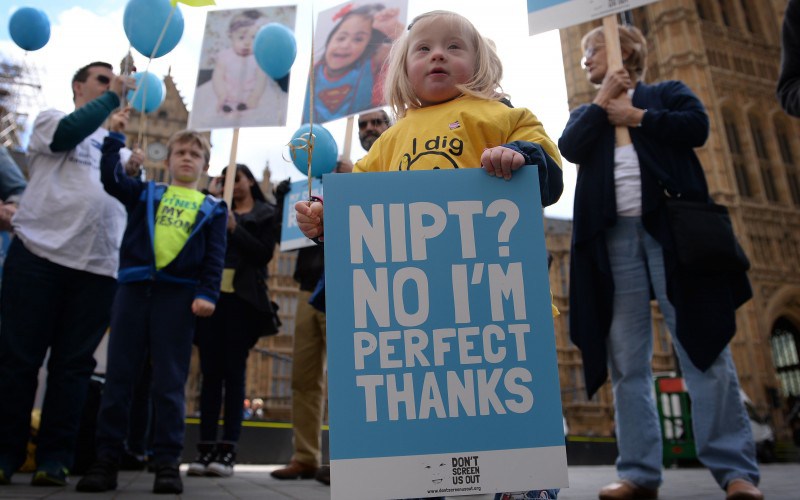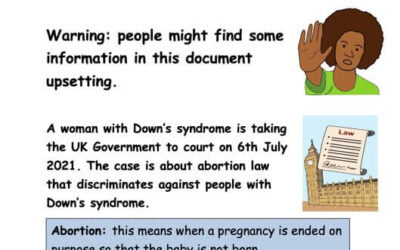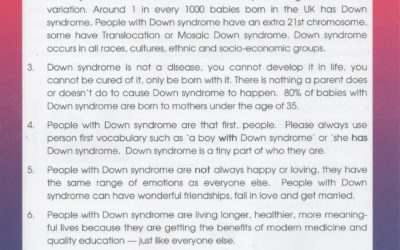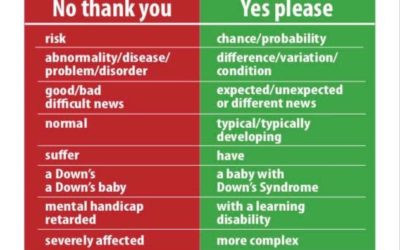The Welsh Government has announced that they are rolling out a new Non-Invasive Prenatal Test (NIPT), a screening test for Down’s syndrome, from May 2018. Unfortunately, the Government is going ahead with the roll-out without much of the due diligence that that should be attended to before implementing a Public Health screening programme such as this. If this isn’t done then the implementation of this test will have a profoundly negative impact on the community of people with Down’s syndrome.
We are encouraging people with Down’s syndrome and their families in Wales to write to their Assembly Member (AM) to ensure that we highlight areas of concern and ask that they be resolved.
Three easy steps:
- Find your Welsh Assembly Member and their contact details – you can do this easily here: http://senedd.assembly.wales/mgFindMember.aspx
- If you have time, use the letter below as a starting point for writing to your local Assembly Member highlighting the key questions that are included there, adding your own relevant experiences. If you do not have time to personalise the letter below, please feel free to send on the letter as it is.
- Encourage your friends and family to write to their Assembly Members – feel free to circulate the letter below to them.
Sample letter/email:
Dear <Enter your assembly members name> AM,
I hope this finds you well. <I have Down’s syndrome/I’m the parent/grandparent/sibling of a person who has Down’s syndrome> and I understand that a new screening test, Non-Invasive Prenatal Test (NIPT), is being rolled out in Wales later this month.
The Don’t Screen Us Out campaign, established in 2016, has highlighted the issues of concern around such screening. In 2017, Dr Gareth Thomas, an academic at Cardiff University published research on antenatal screening, subsequently, in a 2017 Cardiff University News Article he stated ‘This research shows that there are many issues and concerns with the way that Down’s syndrome screening currently happens.’ I share those concerns, and would, therefore, like to ask:
- How have Welsh families, where a member of their family has Down’s syndrome, been consulted?
- How have Welsh people with Down’s syndrome been consulted?
- Will the Welsh Government be adopting the recommendations from Nuffield’s 2017 report on NIPT (such as creating a guideline to support people continuing with pregnancy) when NIPT is rolled out?
- Some Welsh screening literature still contains words like risk/problem/abnormality when referring to Down’s syndrome and presents the old medical model of disability. In light of the impending rollout of NIPT, will all Welsh screening literature be improved immediately to comply with public health equality duty?
- Can you advise who expectant parents will be referred to for counselling when they are found to have a high chance/positive screening test result?
- Will those referral agencies/charities have accredited counsellors; what experience/knowledge of living with DS will they have? Can we be assured that their publications will also be reviewed in line with Public Health Equality Duty (point 4)?
- The introduction of a new technology such as genomic testing into a population screening programme obviously presents new challenges for Public Health, can you advise what assessment has been made of the impact this will have?
- Can you provide the review of screening showing how NIPT proposals conform to the United Nations Convention on the Rights of People with Disabilities (UNCRPD)?
I would be grateful for a response regarding these important matters because many pregnant women have had difficult screening experiences. Furthermore, a negative stereotype of Down’s syndrome is often being presented at screening appointments, thus creating a stigma around those people living with Down’s syndrome. All of this is unacceptable, as I’m sure you will agree?
Kind Regards
Name
Address
Postcode



